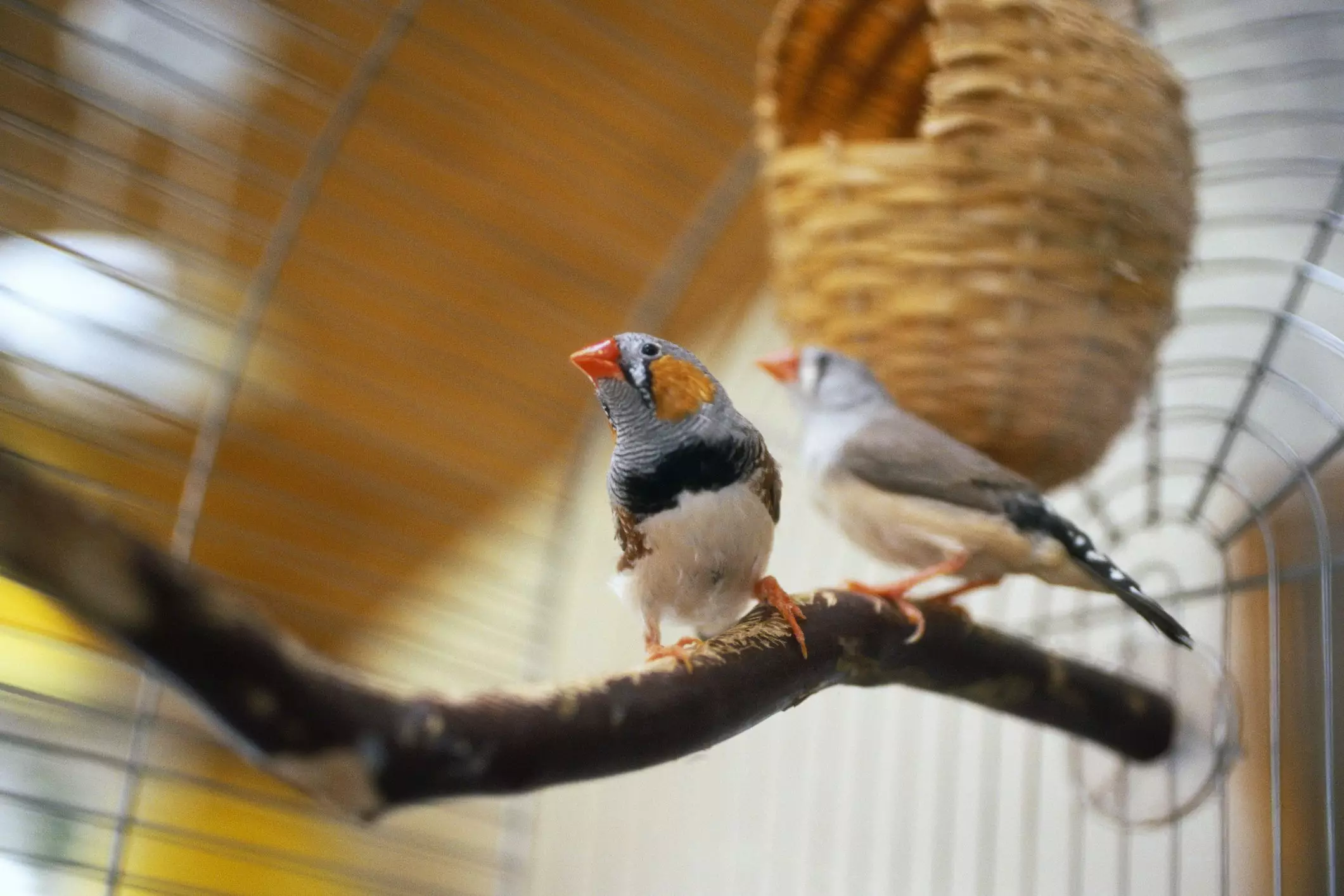When it comes to selecting a feathered companion, pet owners often seek out birds that exhibit gentle temperaments and sociable natures. Not all birds fit this mold, but several species stand out for their amiable characteristics. In this guide, we will explore the most gentle pet birds, touching upon their unique features, behaviors, and the reasons they make excellent companions.
Pionus parrots have carved a niche for themselves in the avian world, thanks to their gentle demeanor and independent spirit. Typically measuring around 11 inches in length and weighing between 8 to 9 ounces, these birds feature a striking blue head with a lush green body and vibrant red accents on their tails. Unlike other parrot species that can be overly needy, Pionus parrots can often entertain themselves, making them less prone to mood swings.
Their intelligent nature means they thrive in interactive environments, enjoying mentally stimulating toys that let them engage both physically and mentally. They may not demand constant attention, but they do appreciate companionship, making them ideal for pet owners who can offer a balance of interaction and independence.
Doves hold a special place in many cultures as symbols of peace and love, and their gentle nature makes them excellent pets. These birds typically range from 11 to 13 inches in size and weigh between 5 to 8 ounces. Sporting muted tones of gray and brown, doves are easily distinguishable by their characteristic black collars and serene expressions.
For potential pet owners, doves offer a calm and affectionate alternative. They tolerate gentle handling and do not require excessive attention, making them particularly suitable for apartment living or individuals seeking a low-maintenance pet. Their soft cooing enhances their appeal, contributing to a peaceful ambiance in any household.
Commonly known as budgies or parakeets, these vibrant birds are adored for their playful and sociable nature. Despite their small size, measuring about 6 to 8 inches and weighing just 1 ounce, their personalities can fill a room. With a variety of plumage colors, including blues, yellows, and greens, budgies are not just a feast for the eyes but also for the heart.
Budgies thrive on social interaction and can be taught to mimic human voices, adding to their charm. While they may exhibit occasional biting behavior when provoked, proper training can minimize this. Their playful disposition and willingness to engage with their human companions make them a cheerful addition to any home.
While the hyacinth macaw is the largest of all parrot species—reaching up to 40 inches in length and weighing between 42 to 51 ounces—their affectionate and gentle nature has won them the nickname “gentle giants.” With stunning solid blue plumage and eye-catching yellow patches near their beaks, these birds often dispel any apprehensions associated with their size.
Though they possess strong beaks capable of cracking hard substances, appropriate socialization tends to lead to a reliable demeanor around their humans. They form strong bonds and thrive on interaction, making them suitable for dedicated bird enthusiasts who can provide ample space and engagement.
Finches present another option for those looking for gentler birds. These small, melodic creatures typically measure around 4 inches in length and weigh approximately half an ounce. Their pleasant chirps and lively movements make them enjoyable to observe, especially in flocks.
One must recognize that finches do best in an environment where they are free to explore a spacious aviary. They are not particularly fond of being held, making them ideal for individuals who appreciate observing rather than directly interacting with their pets. This ‘hands-off’ approach allows finches to thrive in their natural inclinations, which can be deeply rewarding for pet owners.
Known for their vibrant plumage and affectionate nature, eclectus parrots have distinct gender differences in appearance. Males are characterized by their bright emerald feathers and orange beaks, while females display striking red and blue hues. These parrots can reach lengths of 17 to 20 inches and weigh between 13 to 19 ounces.
Eclectus parrots thrive on social engagement but can display jealousy if neglected. Their gentle disposition and tendency to communicate affectionately create a warm companionship for those willing to invest time nurturing their social needs.
The Bourke’s parakeet is a lovely choice for pet bird enthusiasts. Measuring about 7 to 9 inches in length and weighing roughly 2 ounces, these birds exhibit soft, brown-tinted plumage with vibrant accents. They are gentle, laid-back birds that are often active during the early morning and evening hours while remaining calm and quiet during the day.
Bourke’s parakeets adapt well to family life, offering companionship without demanding constant attention. Their amiable nature makes them suitable for households looking for a more subdued pet experience.
Finally, cockatiels are celebrated for their friendly demeanor and vocal abilities. These playful parrots enjoy mimicking sounds and whistling, creating an engaging environment for their owners. Known for their affectionate instincts, cockatiels can be quite social, bonding closely with their caretakers.
Choosing a gentle pet bird involves considering the temperament, size, and specific needs of various species. Each of the birds discussed brings unique qualities that can enrich the lives of their owners while offering the gentle companionship that many seek in a pet. Whether it’s the affectionate pionus parrot or the melodious cockatiel, finding the right feathered friend involves understanding what each brings to the relationship.

